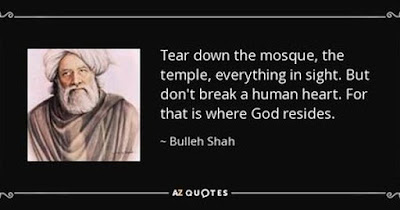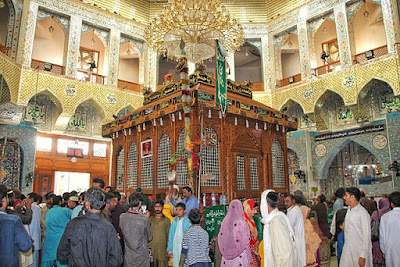Bulleh Shah: A voice against religious bigotry

Introduction “Not a believer inside the mosque, am I nor a pagan disciple of false rites not the pure amongst the impure Neither Moses, nor the pharaoh” ~ Bulleh Shah A man who was refused by the mullahs to be buried after his death in the community graveyard because of his unorthodox views, today enjoys worldwide reverence and recognition. The tomb of Baba Bulleh Shah in Kasur (Pakistan) and the area around it is today the only place free of collective refuse, and the privileged of the city pay handsomely to be buried in the proximity of the man they had once rejected. This radical change has been possible because people have been impressed in the course of time by the holy way of Bulleh’s life and the efficacy of his teachings. Baba Bulleh Shah is one poet who wrote in complete surrender of love. At times singing, at times dancing and at times dressed as a woman, he also became the voice of woman in Punjab. A Sufi saint, whose philosophy of life was beyond the boun...
